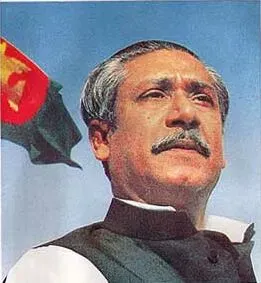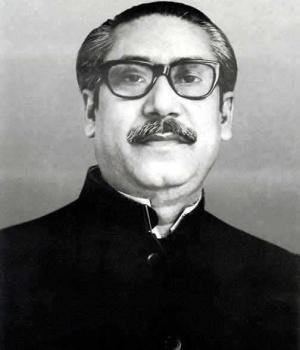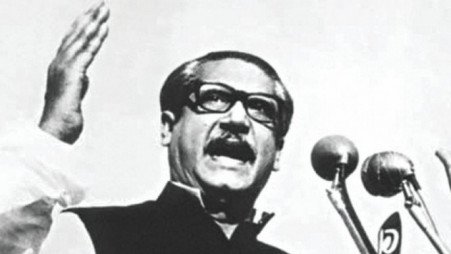Introduction

Bangladesh, a nation in South Asia, boasts a rich history, vibrant culture, and a proud identity. At the core of this identity stands a towering figure, a visionary leader, and the architect of Bangladesh's independence – Bangabandhu Sheikh Mujibur Rahman. Known as the "National Father" of Bangladesh, his life, leadership, and unwavering commitment to his people's welfare made an indelible mark on the nation's history. In this blog, we'll explore the life and legacy of this great leader who played a pivotal role in shaping the destiny of Bangladesh.
Early Life

Mujibur Rahman, affectionately referred to as "Bangabandhu," was born on March 17, 1920, in the village of Tungipara in Gopalganj, Bangladesh. From a young age, he exhibited an extraordinary sense of leadership, charisma, and a deep connection to the struggles of his fellow countrymen. As he grew, so did his commitment to fighting for the rights and self-determination of the Bengali people, who faced discrimination and exploitation under British colonial rule and later during the Pakistan period.
The Road to Independence
The path to Bangladesh's independence was filled with challenges and sacrifices. Mujibur Rahman, as a prominent leader of the Awami League, emerged as the voice of Bengalis who demanded autonomy and equality. His stirring speeches and unwavering commitment inspired millions to stand up against oppression and tyranny.
One of the most pivotal moments in the journey to independence was the Bangladesh Liberation War of 1971. Mujibur Rahman's leadership during this turbulent period was instrumental in the creation of an independent Bangladesh. The war culminated in a brutal conflict with Pakistan, which resulted in the birth of a new nation on December 16, 1971.
A Visionary Leader
Bangabandhu Sheikh Mujibur Rahman became the founding father and the first President of Bangladesh. He embarked on a mission to rebuild the war-torn nation. His vision encompassed not only political independence but also socio-economic development and the promotion of democratic values.
Key Achievements
Constitution of Bangladesh: Under his leadership, the nation adopted a constitution that reflected the aspirations of the people, guaranteeing fundamental rights, democracy, and the rule of law.
Social and Economic Reforms: Bangabandhu implemented progressive policies to uplift the living standards of the impoverished population. His government aimed to reduce poverty, improve healthcare, and promote education.
Foreign Policy: He skillfully navigated Bangladesh's international relations, forging diplomatic ties with many countries and advocating for the rights of developing nations.
Tragic End

Tragically, Mujibur Rahman's remarkable journey was cut short on August 15, 1975, when he, along with most of his family members, was assassinated in a military coup. His untimely death was a tremendous loss to the nation, leaving a void in Bangladesh's political landscape that has yet to be filled.
Legacy
Bangabandhu Sheikh Mujibur Rahman's legacy endures in the hearts and minds of the Bangladeshi people. He remains an iconic figure, not only as the leader who led them to freedom but as a symbol of resilience, democracy, and hope. His ideals and vision continue to shape the nation's policies and its pursuit of social justice, economic development, and human rights.
Conclusion
Bangabandhu Sheikh Mujibur Rahman is rightly celebrated as the National Father of Bangladesh. His life was a testament to the power of determination, resilience, and unwavering commitment to the well-being and freedom of his people. Bangladesh, as a nation, owes much of its identity and progress to this extraordinary leader, whose vision and sacrifice continue to inspire generations.
Bangabandhu's legacy serves as a reminder of the enduring spirit of the Bangladeshi people, reminding them of the power of unity, justice, and the pursuit of a brighter future. His memory lives on, as does his dream of a prosperous and equitable Bangladesh.